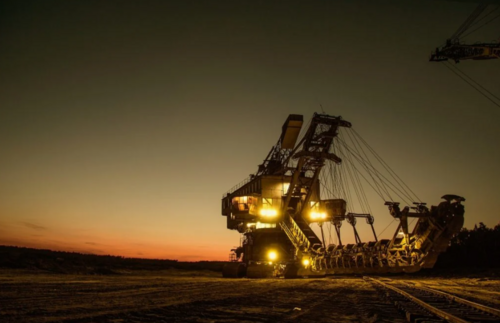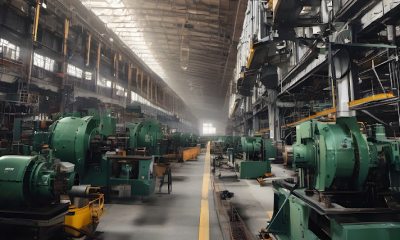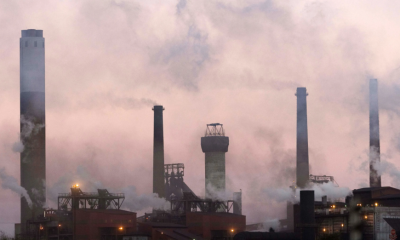Business
Trouble Brewing in South Africa’s Mining Industry as Job Losses Mount

The cracks in one of South Africa’s most vital economic pillars are starting to show. The mining industry, long regarded as a cornerstone of the national economy, is under severe strain — and the ripple effects could stretch far beyond the mines.
According to the Minerals Council South Africa (MCSA), mining production is expected to contract sharply in the first quarter of 2025. This puts real pressure on the country’s GDP and could spark broader fiscal consequences at a time when every tax rand matters.
A Sector in Decline
Mining contributed roughly 6% to South Africa’s nominal GDP in the first three quarters of 2024 and supported almost half a million jobs — about 2.9% of the country’s total formal employment. But that number is falling.
In 2024, the sector lost 12,877 jobs, driven by soaring electricity costs, weak platinum group metals (PGM) prices, and ageing gold mines. The latest Stats SA data paints an even grimmer picture: seasonally adjusted mining output fell 4.4% in February, with major sub-sectors like PGMs and nickel dropping by 18.8% and 24.6%, respectively.
And while some metals — such as manganese and copper — remain relatively stable, they’re not enough to carry the weight of the industry.
What’s Dragging the Sector Down?
A perfect storm is brewing:
-
Uncertain global demand for PGMs
-
Depressed commodity prices
-
Logistical bottlenecks for iron ore
-
Tariff uncertainty, which has left producers hesitant to increase output
MCSA notes that unless the government creates a more business-friendly, lower-cost environment, the industry risks further decline.
Why You Should Care
Beyond its contribution to GDP and employment, the mining sector has a direct impact on government revenue — and by extension, your taxes.
With real GDP growth stagnating, Treasury has leaned heavily on tax increases to close budget shortfalls. The 2025 Budget proposes a 1.0% VAT increase (phased in by 2026) and keeps income tax brackets unchanged, pushing effective taxes higher for most workers.
The Minerals Council warns that without a mining rebound, South Africans could face more tax hikes or deeper cuts to essential services.
“The only way to break the sub-optimal cycle of tax hikes or spending cutbacks to frontline services is through higher rates of inclusive GDP growth,” said MCSA Chief Economist Hugo Pienaar.
And that means fixing mining.
What Needs to Happen
Despite the gloom, there are some positive steps. The 2025 budget includes:
-
Expanded diesel refunds for miners
-
An extended carbon tax relief period
-
Infrastructure investment corridors to improve logistics
But experts say this isn’t enough. To unlock mining’s full potential, South Africa needs:
-
Regulatory certainty
-
Cheaper, more reliable energy
-
Faster rail and port reform
These changes could stabilize the sector, protect jobs, and — perhaps most importantly — provide the revenue needed to avoid future tax hikes.
South Africa’s mining industry is at a crossroads. If the current decline continues, the effects could be felt far beyond the mine gates — in national revenue, in household taxes, and in job security.
For South Africa to grow, its mining sector must recover. But that recovery will take bold action and long-overdue reform.
{Source: BusinessTech}
Follow Joburg ETC on Facebook, Twitter , TikTok and Instagram
For more News in Johannesburg, visit joburgetc.com



























